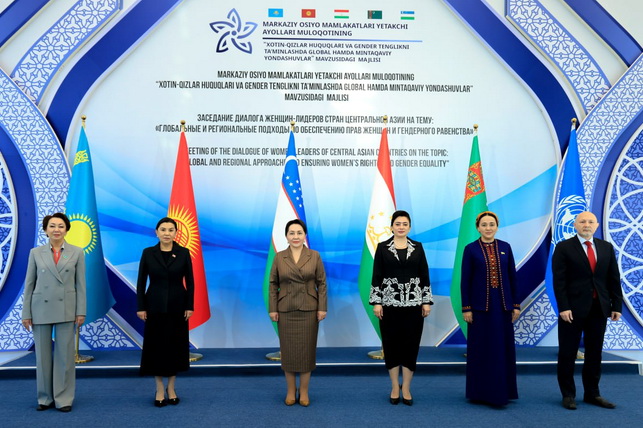
Meeting of Central Asian Women Leaders’ Dialogue Opens in Tashkent
Meeting of Central Asian Women Leaders’ Dialogue Opens in Tashkent
Tashkent, Uzbekistan (UzDaily.com) — On 12 November 2025, Tashkent hosted a session of the Central Asian Women Leaders’ Dialogue, aimed at strengthening regional cooperation and expanding women’s participation in the socio-political and economic life of the region.
The event brought together parliamentary leaders and official delegations from Azerbaijan, Kazakhstan, Kyrgyzstan, Tajikistan, Turkmenistan, and Uzbekistan, as well as representatives of youth parliaments, local authorities, international organizations, and civil society institutions.
The session was opened by Tanzila Narbayeva, Chairperson of the Senate of the Oliy Majlis of Uzbekistan, who highlighted the significant achievements made by countries in the region in promoting women’s empowerment and strengthening their role in governance and public life.
According to Narbayeva, enhancing the role of women in Central Asia is not only a factor of social progress but also a guarantee of peace, stability, and sustainable economic growth. She emphasized that the Women Leaders’ Dialogue elevates regional cooperation and women’s solidarity to a qualitatively new level.
During the plenary session, delegation heads presented national priorities, expected outcomes, and key areas of cooperation. Special attention was given to the implementation of the Beijing Declaration and Platform for Action, celebrating its 30th anniversary this year. These documents cover twelve key areas, ranging from women’s participation in politics and economic independence to gender equality in education, healthcare, and the fight against violence.
The Dialogue program includes five thematic sessions, where participants discuss women’s participation in decision-making—rights, opportunities, and responsibilities; development of women’s entrepreneurship as a source of economic growth and social stability; policies on education and reproductive health; the role of women in innovation, media, and climate policy; and legal protection mechanisms and measures to combat violence against women.
The session is expected to produce a final document and a “roadmap” for the development of regional cooperation, as well as establish a system for annual monitoring and experience-sharing among Central Asian countries.
The Women Leaders’ Dialogue underscores the region’s commitment to advancing equality, developing partnerships, and jointly implementing international obligations in gender policy and sustainable development.